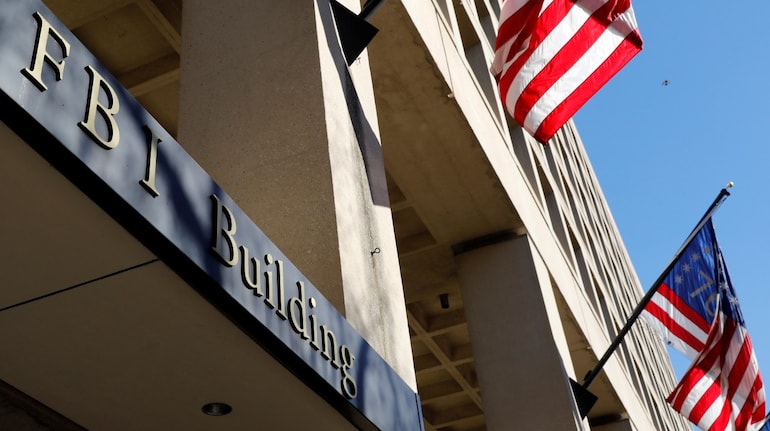
The emails warned recipients that they had been compromised by a data breach
The biggest sticking point in the late-night negotiations over the sprawling $1.7 trillion spending package the Senate released in the wee hours Tuesday had little to do with any actual spending.
Instead, lawmakers from Virginia and Maryland stalled the release of the federal spending plan over a decadelong, teeth-pulling battle to determine where to relocate the FBI headquarters.
Democratic lawmakers split hairs over details of a long-debated plan to demolish the crumbling Brutalist headquarters in downtown Washington, D.C. Previous attempts to fulfill the project were scratched in 2017, scuttled in part by funding issues and former President Donald Trump, who took an unusual interest in the future of the FBI building.
The plan is to turn over the aging headquarters, the J. Edgar Hoover Building, to a commercial developer who would build a new property in its place. In 2014, the General Services Administration, the government’s landlord, named three potential sites, two in Maryland and one in northern Virginia, for a developer to construct a 2.1-million-square-foot, state-of-the-art campus.
The criteria used to select a location became a sticking point during negotiations. Maryland delegates, at the behest of House Majority Leader Steny Hoyer, D-Md., suggested that a location should be chosen with more emphasis on racial equity and rallied for a site in Prince George’s County, which has a predominantly Black population, according to a Senate aide familiar with the negotiations.
“We strongly believe that the initial criteria that were proposed by the F.B.I. unfairly tilted the playing field toward Virginia,” Sen. Chris Van Hollen, D-Md., said in an interview Tuesday.
Van Hollen said he thought the Maryland contingent’s ask was consistent with the Biden administration’s approach, which has emphasized doling out federal investments equitably.
“We don’t think that has been given enough weight in the current process,” he said.
Virginia delegates disagreed with changing the criteria, arguing that the state had more assets, workers and related national security agencies that would enhance the FBI’s ability to function.
“It would have set a very bad precedent for Congress to weigh in and change the site selection criteria that the agency and the GSA had come up with,” Sen. Tim Kaine, D-Va., said in an interview.
The negotiated terms, brokered by Senate Majority Leader Chuck Schumer, D-N.Y., mandated that the GSA administrator conduct detailed consultations with representatives from the two states and consider the selection criteria within 90 days of the passage of the measure. The legislation also requires the administrator to pick a location.
Virginia delegates also acceded to receiving a smaller amount of money than requested to help relocate the current tenants in the Virginia site, should it be chosen, said Rep. Gerald Connolly, D-Va.
“For a Maryland member of Congress to use his power at the last minute to steer a contract to his home state and district is really a very serious matter,” Connolly added. “From the Virginian point of view, we didn’t do anything, we didn’t try to change anything. We’re willing to abide by the rules as established by GSA and FBI.”
Maryland delegates argued that they were promoting their state’s interests, as lawmakers normally do when they craft a federal spending plan for the year. They also emphasized how conversations over the criteria have been going on for months, with lawmakers holding a news conference in November pushing for a site in Prince George’s County.
“Taking into account the needs of the bureau, the cost of the sites and the federal government’s responsibility to consider the equity impacts of agency location decisions, it’s clear that Prince George’s County is the best option for the new headquarters,” read a joint statement from Van Hollen, Hoyer and Sen. Benjamin L. Cardin, D-Md. “We will continue pushing for a process that fairly considers and recognizes these immense benefits.”
FBI agents have operated in the current building since 1974, previously having been housed in the Department of Justice office. Only half of the agency’s 11,000 agents work in its cramped office in downtown D.C.; the rest are scattered among more than a dozen leased locations in and around Washington that cost $150 million annually as of 2015.
Around that time, Trump’s personal involvement in discussions about the future of the FBI headquarters raised eyebrows among Democrats in Congress, who worried that the former president had intervened to prevent the land from being redeveloped with a project that would compete with his company’s hotel that was across the street. His involvement and the relocation progress were also reviewed by the Department of Justice’s inspector general in 2019.
The bureau itself appeared to be maintaining a neutral stance on the location of its new headquarters, releasing a statement that said: “We are confident in GSA’s expertise to select a location that will best serve the needs of the FBI long into the future.”
This article originally appeared in The New York Times

